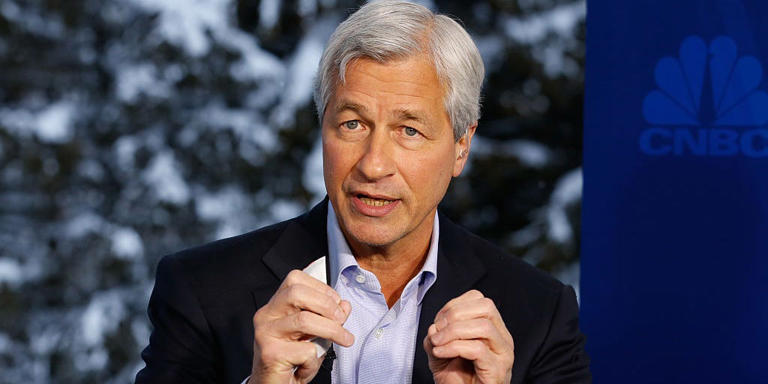Jamie Dimon’s Inflation Warning
Jamie Dimon, the CEO of JPMorgan, has issued a stark warning about the future of inflation, suggesting that it may persist longer than many anticipate. In an interview with Bloomberg TV at the JPMorgan Global Markets Conference, Dimon emphasized that the market’s current outlook on inflation, interest rates, and the overall U.S. economy is overly optimistic. He pointed out that interest rates are more likely to increase than decrease, driven by various persistent inflationary pressures.
Dimon underscored that underlying inflation might not subside as quickly as many expect. He identified several factors that could sustain higher inflation levels, including the transition to green energy, which involves significant investments and changes in infrastructure that could drive up costs. Additionally, infrastructure development projects and geopolitical remilitarization efforts are expected to keep prices elevated.
Furthermore, Dimon highlighted potential policy changes that could exacerbate inflation. Rising trade restrictions, which can lead to higher costs for goods and services, and continued fiscal overspending, which can increase the money supply and spur inflation, are likely to contribute to ongoing price increases. Despite market hopes for easing inflation and interest rate reductions, Dimon remains skeptical, describing such expectations as “a lot of happy talk.”
JPMorgan Asset Management’s Quarterly Market Guide
JPMorgan Asset Management recently released its latest quarterly market guide, providing a comprehensive overview of the current economic environment, which is characterized by both excitement and uncertainty. David Kelly, the firm’s chief global strategist, discussed some of the paradoxical economic trends highlighted in the report.
The report notes that despite earlier fears of a recession, U.S. stocks ended the first quarter at record highs. Some analysts even predict that the S&P 500 could surpass the 6,000 mark by the end of the year. This optimism is driven by expectations of moderating inflation and lower interest rates, which are seen as conducive to economic growth and strong market performance.
However, the report also acknowledges a myriad of uncertainties that could impact the economic outlook. The 71-page document is rich in data and charts, aiming to shed light on underappreciated aspects of the current economic situation. Kelly emphasized the importance of highlighting significant but overlooked economic stories, providing clients with the information they need to navigate the complex economic landscape.
Dimon’s Ongoing Concerns
Jamie Dimon’s concerns about inflation and economic policy are not new. In his annual letter to JPMorgan shareholders, he expressed a similarly cautious outlook, citing geopolitical tensions and economic uncertainties as significant risks. Despite a recent surge in investor optimism, as indicated by Bank of America’s Global Fund Manager Survey, Dimon remains wary. He believes that the probability of monetary policy tightening is higher than most investors anticipate. He suggests that expectations of a soft economic landing should be tempered, given the persistent inflationary pressures and potential for higher interest rates.
U.S.-China Relations
On a different note, Dimon has offered a more optimistic perspective on U.S.-China relations. Despite growing geopolitical tensions and China’s increasing ties with Russia, Dimon advocates for continued engagement with China. He argues that China is not inherently antagonistic towards the United States and that both countries have mutual interests that can be advanced through cooperation. Dimon believes that competitive engagement with Beijing is crucial, as China faces its own internal challenges that could be better addressed through collaborative efforts with the U.S.
Key Takeaways
Dimon’s remarks, coupled with the insights from JPMorgan’s latest market guide, paint a complex picture of the current economic landscape. While there is optimism about stock market performance and potential economic growth, significant risks and uncertainties persist. Dimon’s warnings about persistent inflation and the likelihood of higher interest rates serve as a reminder of the challenges that could lie ahead.
Investors and policymakers must navigate these complexities with caution. The potential for ongoing inflationary pressures and tighter monetary policy could pose challenges to economic stability and growth. At the same time, fostering constructive engagement with global partners like China could provide opportunities for addressing shared economic challenges. Overall, the future economic outlook remains uncertain, requiring careful consideration of both the risks and opportunities that lie ahead.
